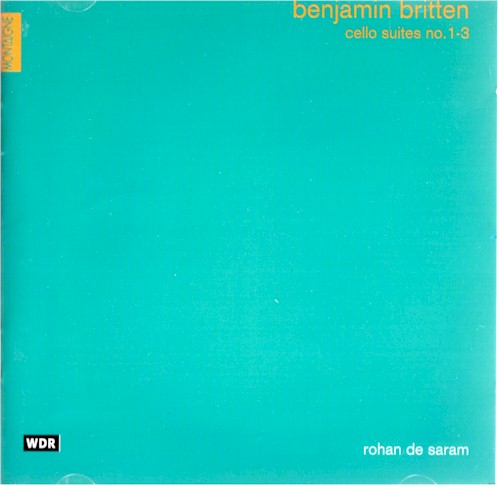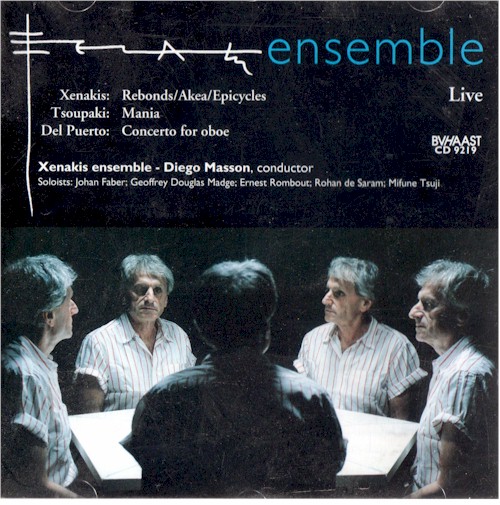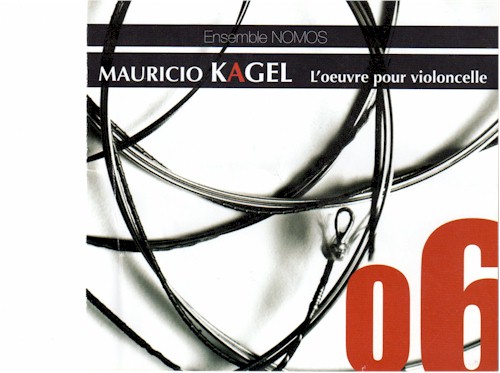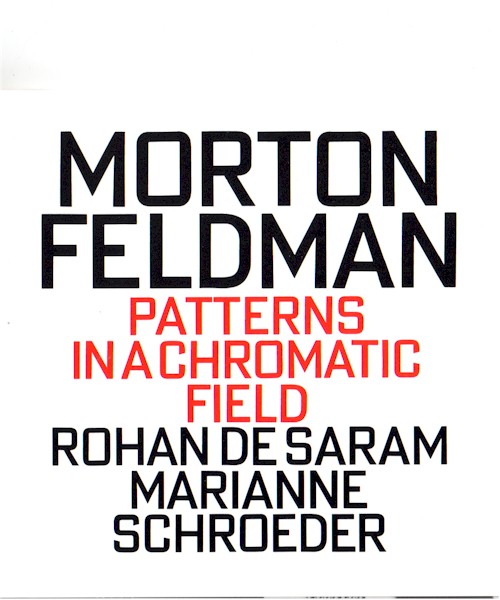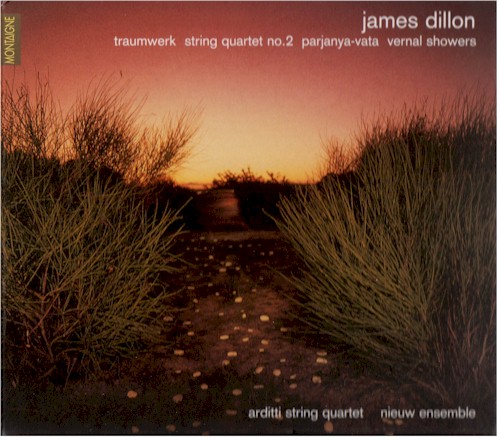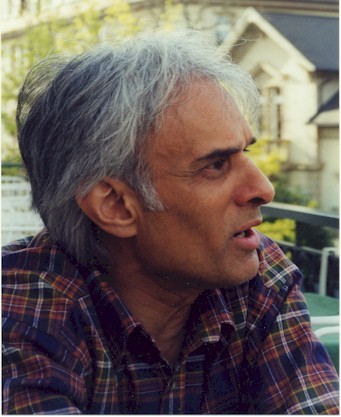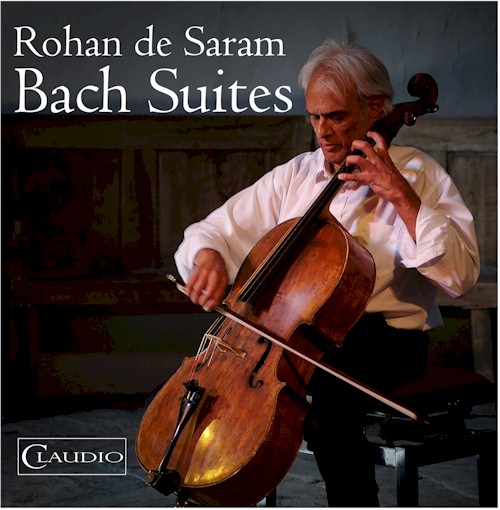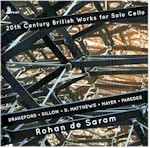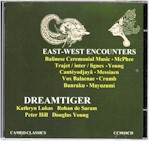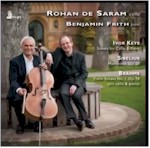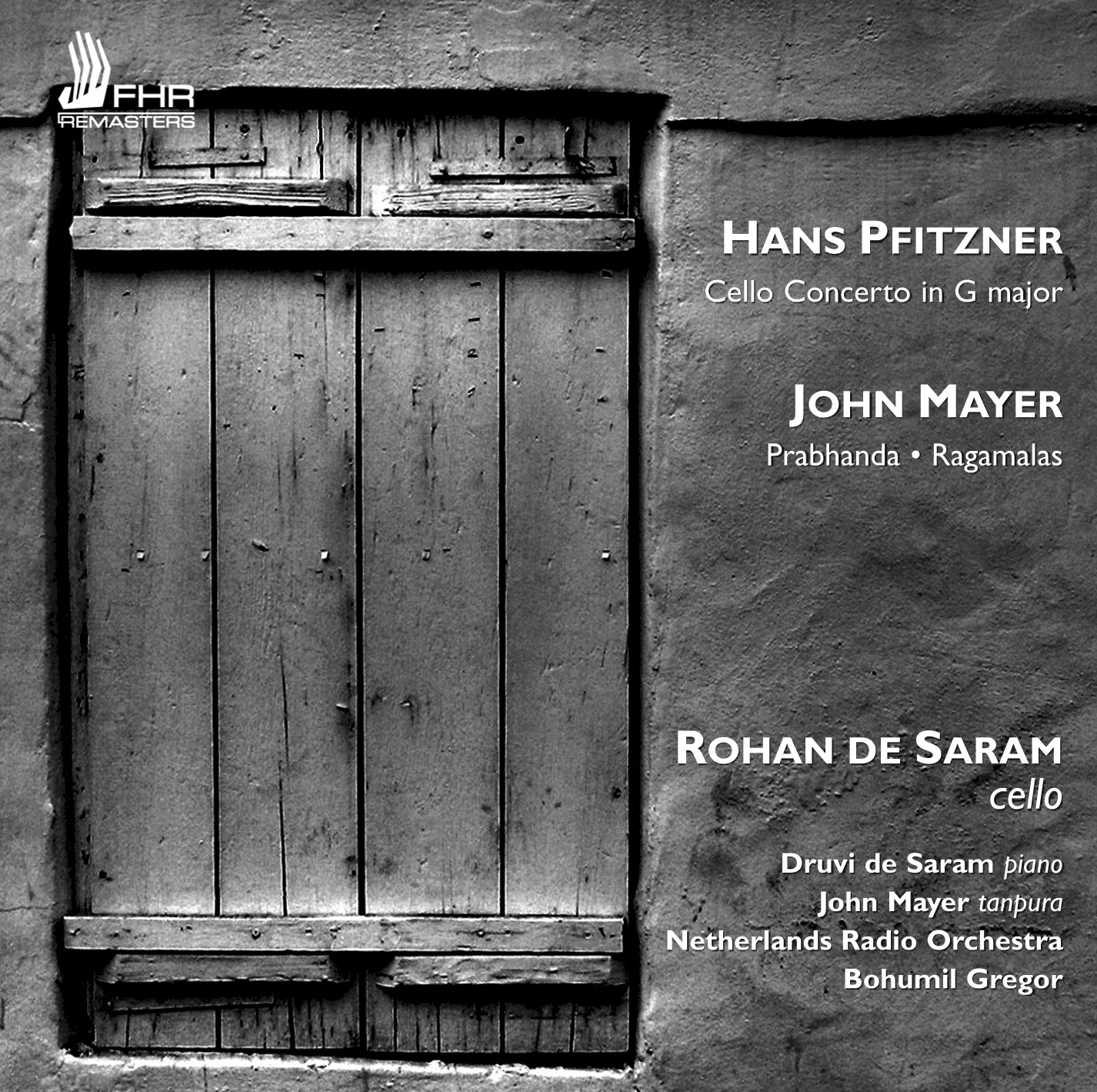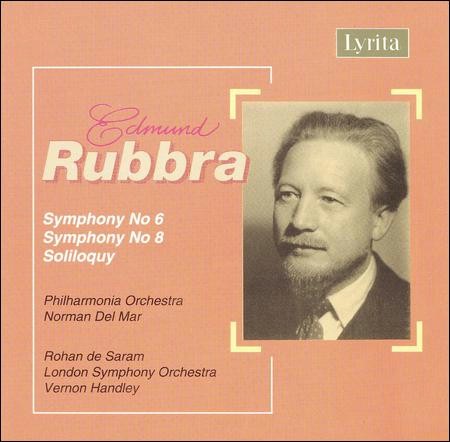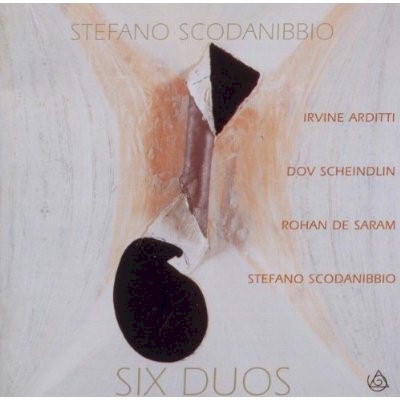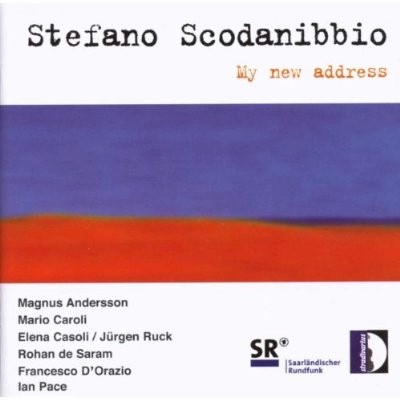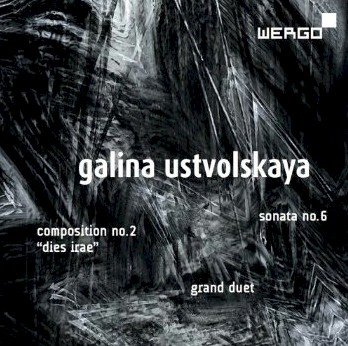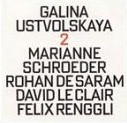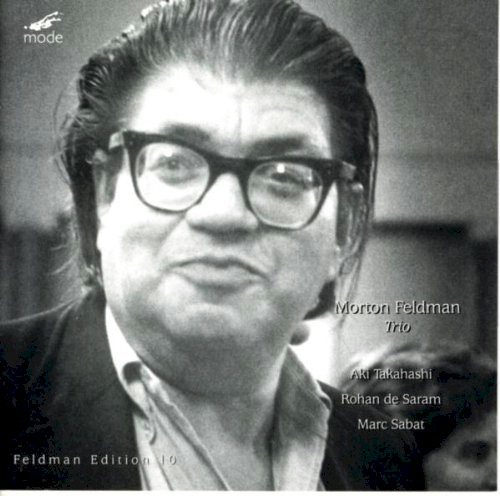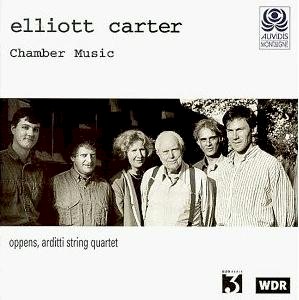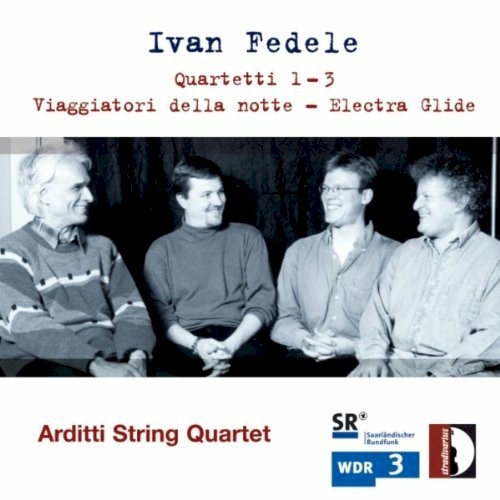| Review of Crumb: Dream Sequence, Cello Sonata, Vox Balaenae; Dreamtiger Ensemble, Classical Notes CD Reviews |
| ... This is a fascinating window on Crumb’s music, and this disc is an important record of Ensemble Dreamtiger’s relationship with the composer and performances of his work. |
| Review of Crumb: Dream Sequence, Cello Sonata, Vox Balaenae; Dreamtiger Ensemble, American Record Review March/April 2023 |
| ... Rohan de Saram’s cello virtuosity is thrilling, his musicality impeccable. |
| Review of Crumb: Dream Sequence, Cello Sonata, Vox Balaenae; Dreamtiger Ensemble, BBC Music Magazine Review |
| ...the richly expressive hands of Rohan de Saram |
| Review of Prokofiev Cello Concerto Op.58; Ballade Op.15; Cello Sonata Op.119 |
| Sergei Prokofieff wrote four works with the cello. Here are three of them, recorded back in 1971 and 2 by the well-known De Sarams. The concerto is played with a cut in the Finale, but it usually suffers from two cuts, so we're in better hands here than usual. The only uncut recording I am aware of is by Alexander Ivashkin (Chandos 9890), but he doesn't play it as well as some. The present performance is fine otherwise, as are the gloomy Ballade and the late and lovely three-movement sonata. I should mention that the Concerto is rarely played in this original version, since Prokofieff later transformed it into Sinfonia Concertante, Op. 125. There are many recordings of that, but if its origin interests you, here is a good place to hear it. Rohan de Saram is a well-known cellist who is still with us at 82. He studied with Gaspar Cassado and Pablo Casals, and he and his pianist brother Druvi have worked together on a considerable number of fine recordings. They play together with unity and decision! This is listed as a concert recording, but one does not hear an audience. It is a quiet and well-mastered recording that gives our ears a treat. © 2021 American Record Guide |
| Review of Prokofiev Cello Concerto Op.58; Ballade Op.15; Cello Sonata Op.119, Diapason Review of Prokofiev CD |
| Précision parfaite de l’intonation et du jeu de main gauche, rubato invincible, phrasés raffinés et subtils, respiration large, exemplaire souplesse rythmique, solennité rêveuse des mouvements extrêmes et savoureuse spontanéité du Moderato central |
| Review of Prokofiev Cello Concerto Op.58; Ballade Op.15; Cello Sonata Op.119, Full review |
| ...quelle version !, qui je crois bien supplante toutes celles que je connais... |
| Review of Prokofiev Cello Concerto Op.58; Ballade Op.15; Cello Sonata Op.119, Arts Music Lounge May 2021 |
| ...the sound quality of the Cello Concerto is so good that you’d think it was recorded yesterday. It was also wonderful to hear again the vibrant conducting of the late Anatole Fistoulari, born in the Ukraine but later a British citizen. Between the two of them, they create magic with this not-so-well-worn piece. De Saram brings out all of the warmth that is in the score while Fistoulari keeps things moving on the podium. |
| Review of Bach Suites, Music Web International, January 2021 |
| It could be asked whether there is room for another interpretation of the Bach Cello Suites ... Rohan de Saram answers 'Yes' ... the cello sound is sumptuous, full, woody and extremely satisfying ... the performances here are likely to convince you of [the music's] beauty and profundity within a few minutes thanks to de Saram's thoughtful and accomplished playing. |
| Review of Requiebros, Nick's Classicla Notes Blogspot, June 2020 |
| This is a recital of exemplary performances, made all the more fascinating given the history and connections to some of the great traditions of twentieth century cello playing. |
| Review of Requiebros by Glyn Pursglove, Music Web International, May 2020 |
| This is amongst the very best recorded recitals of short pieces for cello and piano that I am familiar with. I feel sure that all who have a particular love of the cello would take much delight in Requiebros. |
| Review of Requiebros, The Art Music Lounge, February 2020 |
| He digs into this music with the passion of a man to the manner born ... His deep feeling and legato playing in Nana from the Seven Popular Spanish Songs is absolutely exquisite. |
| Review of 20th Century British Works For Solo Cello |
| Organist Kevin Bowyer once said that he could happily listen to Ronald Stevenson reading the phone book, such were his oratorical gifts. One might feel moved to remark that to hear the remarkable Rohan de Saram play it would be even more rewarding, See Full review |
| Review of 20th Century British Works For Solo Cello |
‘Now, this is the kind of cello recital I look forward to hearing.’ Lynn René Bayley - See full review |
| Review of Works for Solo Cello CD (Bax et al) |
‘In short, this disc is a credo of devotion, raptly played and recorded, and offering just one of the many musical autobiographies that could be gifted to a musician as adaptable, questing and resourceful as Rohan de Saram.’ Jonathan Woolf - See full review |
| Review of Works for Solo Cello CD (Bax et al) |
‘This is an excellent album, one of the finest solo cello recordings I’ve ever heard.’ Lynn René Bayley - See full review |
| Review (in German) of the Scelsi Festival, Basel, Switzerland, January 2019 |
|
| Review (in German) of the Scelsi Festival, Basel, Switzerland, January 2017 |
|
| Review of the London Ear concert, March 2016 |
| Another standout event for me was the Saturday lunchtime concert, in which Johnsen was joined by Carin Levine and Rohan de Saram - a fantastic grouping of musicians. Lachenmann's seminal temA is arguably over performed, but lost none of its charm here. In fact, the performance was every bit as playful as you would hope. (Adam Fergler) |
| Review of the Scelsi Festival concerts, Basel, Switzerland, January 2016 |
|
| Review of FHR CD With Ben Frith |
On the Keys cello sonata:The cellist's identification with and mastery of Keys' sonata makes for compelling listening.
On Maliconia:Rohan de Saram brings real dignity of expression to its paragraphs, imbuing the cantilena with a firm but benevolent sensitivity. (See full review) |
| Review of Aberdeen S.O.U.N.D Festival concert, Woodend Barn 29 October 2015 |
| Once again Rohan de Saram used the huge range of contrasting voices of his cello to bring out the dazzling Spanish colours of this music. (See full review) |
| On Conversations: Miquel Bernadó |
| I have just finished reading the book CONVERSATIONS by Joachim Steinhauser. Great! In my humble opinion you are one of the very, very foremost cellists of our time... Thanks for your great appreciation of the catalan cellists Casals and Cassadó: so different! I wish you a long life ... full of wonderful music: a superb gift to the Humandkind. |
| East-West Encounters: DREAMTIGER CD, Reviewed by John Whitmore, musicweb-international.com |
| This disc is proof that contemporary music can be uplifting, inspiring, tuneful and memorable. Performances are of the highest quality and the sound is detailed and full-toned with a tremendous impact. It's certainly one of the best things to have come out of Cameo and one of the best contemporary music recitals that I've come across in a long time. The vinyl transfer is courtesy of Klassic Haus in the USA and the end result is a pleasure to listen to. This is a disc oozing class. (See full review) |
| Review of Aberdeen S.O.U.N.D Festival concert, The Drone, 25 October 2014 |
| (See full review) |
| Review by Alan Cooper (©SOUND Scotland) for the Aberdeen S-O-U-N-D Festival 2013 |
| 'His wonderfully supple and muscular playing held the broad span of Bach's writing easily within his grasp ... a real firecracker of a performance of the Kodaly' (See full review) |
| On Conversations |
| "packed with wonderful reminiscences ,,, and musical observations - a truly magnificent work. I hope it is widely disseminated and appreciated." (Wendy Maas, Sheffield) |
| Sir Christopher Ondaatje on Conversations |
| An extraordinary book... (See full review) |
| Rajesh Mehta on Conversations |
| This is one of the best books on music, period! I can't believe what a treasure trove of musical jewels and insights it contains |
| German Language Review of Conversations |
| German Language Review of Rohan's Conversations biography |
| Param Vir on Conversations |
| This is a stunningly produced book... spanning a lifetime of artistic endeavour. It sheds fascinating light on Rohan's development as an artist, showing especially the wide ranging intellect and philosophical outlook that has informed his work and collaborations with others. |
| First Hand Records, Mayer, Pfitzner |
| ... de Saram is on inspired form throughout... (Gramophone) |
| First Hand Records, Mayer, Pfitzner |
| The overall performance is extremely well thought out, but passionate at the same time: de Saram specialities. (See full review Musicweb-International)
|
| Mode Records, Morton Feldman Trio |
| ... sustaining this delicate sound world requires the sensitivity and control that violinist Marc Sabat, cellist Rohan de Saram, and pianist Aki Takahashi bring. From barely audible pizzicati to piano chords that are repeated with the subtlest changes in emphasis, this group is steady through the entire performance, and listening to their evanescent playing is a pleasure that any Feldman fan will appreciate. Mode's reproduction is excellent for its responsiveness to the slightest musical effects and for its clean studio sound. (allmusic website)
|
| Los Angeles Times, on-line comment added to review of Colburn School Concert, 16 May 2010 |
| 'It is wonderful to read about the recital by Rohan de Saram. He was an extraordinary child prodigy when we were both studying with Gaspar Cassado ... in the 1950's in Florence, Italy and in Sienna. He must be counted as one of the finest cellists of modern times...In Sienna that year Rohan was the student everybody was talking about. Other students at the Academia Chigiana that summer included Zubin Mehta, Daniel Barenboim, John Williams (guitarist), Salvatore Accardo, but Rohan was the star!' -
Benjamin Zander
Conductor, Boston Philharmonic Orchestra (See full review) |
| Rohan and Suren, Aberdeen S-O-U-N-D Festival, 14 November 2009. |
| ...Following [the] Bach, Rohan de Saram introduced his son Suren who, most appositely for an Aberdeen audience, played Evelyn Glennie's Little Prayer for Solo Marimba ... as sensitively played by Suren as I have heard Evelyn herself play it (See full review) |
| Rohan and Druvi de Saram, Wigmore Hall, London, 3 February 2000 |
| ... each note is new: there is no hint that the music has ever been played before ... (See full review) |
| Rheims, France, 7 July 2011: 'Ai Limiti della Notte' |
| "Combining a perfect mastery of his instrument with a great sensitivity, the artist unveiled the emotional charge of this short piece" (See full review) |
| Prague recital, 22 November 2008; Czech Music Quarterly vol. 4 2008 |
| The high point of the (Contempuls 2008) festival was undoubtedly provided by the cellist Rohan de Saram whose performance was a real spiritual experience. His profound insight into the music, sovereign mastery of the instrument and huge concentration gave listeners a night they will never forget. (Jaroslav Stastny) |
| City of London Festival, 3 July 2008 |
| ... The music had a quiet sumptuousness, the vocal lines beautifully drawn out, the accompaniment sweetly harmonious, de Saram's double-stopping as mellifluous as the singing. ... (TimesOnline) |
| Ensenada recital, April 27 2007: El Vigia En Linea |
... Con una gran concentración, el músico demostró por qué es considerado como uno de los más grandes exponentes del chelo en el mundo, al realizar una ejecución perfecta de la complicada pieza [Bach Suite No2], dónde Bach convirtió el instrumento de melódico a armónico."
Which in translation reads:
"With his perfect interpretation and rendition of Bach's "Suite No.2", [Rohan de Saram] demonstrated conclusively why he is considered one of the world's finest cellists."
Also:
"At the end of the concert, the audience rose to give Rohan de Saram his second standing ovation of the night and, at the eager request of the audience, played an encore by Pietro Antonio Locatelli." |
| CALarts concert, March 17 2007: Out West Arts |
| ... Every note seemed assured and rooted in its exact place in pieces where precision is a necessary but dangerously elusive quality... It's not often that the encore [the third movement from Kodalys Cello Sonata] is truly a showstopper above and beyond the preceding program's actual content, but it was here.... |
| CALarts concert, March 17 2007: LA Times |
| ... The program's solo pieces ... extend the possibilities of the cello, and De Saram brought magnificence to each ... |
| Xenakis: Kottos; Spitalfields Festival, December 18 2006. Anne Ozorio |
| ... He makes one instrument convey a panorama, breathtakingly whizzing from one vista to another. Hearing him play is always an experience, for this level of virtuosity and artistry is unique. |
| Xenakis: Kottos; Aldeburgh, June 20 2008. Anne Ozorio |
| Rohan de Saram is probably its finest exponent ever. I've heard him play this several times, but this was truly stunning. ... The full story is gruesome, pitting father against son in extreme rivalry. The music therefore expresses titanic struggle. As de Saram says "it [is as if] Ouranos is pushing Kottos back into the womb". De Saram does amazing things : long, protracted growls of sound scraping at the lowest possible range of the instrument, manically fast microtonal flourishes executed with great precision. Towards the end, de Saram plays conflicting rhythms with such energy that the music seems to levitate on its own dynamism. .... Kottos is polyphony for a single instrument, and comes alive with a genius like de Saram. |
| MODE recording of complete Berio Sequenzas: |
"[de Saram's] long awaited recording of Berio’s Sequenza XIV is at last available. It's marvellous ... a milestone in the repertoire.
" ... I heard de Saram play Sequenza XIV in 2002, very shortly after it was written, and was overwhelmed. I’ve been waiting for this recording ever since!" |
| Solo Recital, Aberdeen, November 24 2006: Alan Cooper, The Herald, November 27 2006 |
| Rohan de Saram's solo recital on Friday was a revelation. A glorious display of virtuosity, it exposed the contrasting approaches to unaccompanied cello of three very different composers. (See full review) |
| Elgar Cello Conerto; Aberdeen Sinfonietta, Music Hall, Aberdeen, November 16 2006: Alan Cooper, The Herald |
| Virtuoso cellist Rohan de Saram gave a superbly controlled patrician performance of the Concerto, perhaps closer to the real spirit of the work than certain more wildly rhapsodic versions. His rich, warm tone easily soared over the orchestra, which responded in kind to the nobility of his playing. |
| John Mayer Memorial Concert, Adrian Boult Hall (Birmingham): Maggie Cotton, The Birmingham Post, May 2005 |
| Any serious instrumentalists should have crawled over broken
glass ... to hear such distinguished artists as violinist Eric Gruenberg & cellist Rohan de Saram along with others of their ilk, generously giving
their services for this very special event ... western ears were riveted by evocations of India &
truly spectacular playing from brothers Rohan & pianist Druvi de Saram. |
| Dvorak Cello Concerto: Tully Potter, The Strad, September 2004 |
| Those who missed the great Sri Lankan-born cellist Rohan de Saram playing the Dvorak Concerto - his participation was announced rather late - can count themselves unlucky.
This was not only a moving and involving performance. It was the kind of thing one hears very seldom in our pre-packaged, clingfilm-covered modern concert life. Here was a man, renowned for his involvement with contemporary music, showing how well he comprehended every aspect of a late Romantic masterpiece. (See full review) |
| Berio Sequenza: Conrad Wilson, The Herald, reviewing the concert in the Queen's Hall, Edinburgh, March 3, 2006 |
| ... a solid-gold triumph. |
| Berio Sequenza: David Murray, The Financial Times, London, April 19, 2004 |
| Berio had an uncanny knack for recognising unique performers and imagining new things they might never have thought of doing.
For Sequenza XIV he got the Arditti's Rohan de Saram, born in old "Ceylon", to explain Sri Lankan drum-rhythms to him. The result combines warm, singing lines with sections where the cellist sets his bow aside to stab out notes on his strings with the fingers of his left hand (de Saram's are very strong and sure) while his right hand strums rhythms on the wooden belly of his instrument.
It's a complex and substantial piece but also, as usual, freshly seductive and probably inimitable. De Saram, a great cellist but absurdly modest, would admit to being very pleased. (…) |
| Berio Sequenza: Tom Service, The Guardian,Tuesday April 20, 2004 |
| Cellist Rohan de Saram began his UK premiere of Luciano Berio's Sequenza XIV for solo cello by turning this most lyrical instrument into an ensemble of percussion sounds: his left hand made resonant twangs by striking the strings, his right beat the cello's body. It was as if it had been transformed into a delicate and otherworldly drum kit.
This 14th Sequenza was the last of Berio's series for solo instruments, which expanded the repertoire and the identity of every instrument from the trombone to the accordion. The cello piece was written in 2002, a year before Berio's death, for de Saram himself. The mesmerising, rhythmic sounds, inspired by Sri Lankan drums, were a constant refrain throughout the work.
However, as with every other sequenza, the cello piece does not just introduce new techniques and sounds, it transforms more familiar gestures: phrases of achingly lyrical music, dreams of romantic warmth and intimacy complemented the energy of the percussive sections. De Saram's performance characterised every element with virtuosic precision, and held them in a subtle balance. |
| Berio Sequenza: Alan Rich, LA Weekly, Feb. 21-27, 2003 |
| I MAY BE STRETCHING A point, but hear me out: Luciano Berio's Sequenza XIV, which had its U.S. premiere during the Arditti Quartet's recent concert at LACMA, is another work as purely Italian as Rossini's comedy, and in many of the same ways. The Sequenze are among my favorite works, so you've probably heard this all before: More than merely showoff pieces for various solo instruments (including the voice of Berio's former wife, Cathy Berberian), they are a series of dialogues within each instrument, each of them a way of regarding the world around it and finding its specific place. The new Sequenza is for solo cello; it was wondrously performed by the Arditti's Rohan de Saram. It is an extended conversation - 12 or so minutes, if memory serves - by the cello with itself, a melodic gambit played by the bow on strings, an answering phrase by the cello being knocked upon. The conversants touch on many things; by the end we know we've been reached by some beautiful, very mysterious wisdom. |
| Berio Sequenza: MaerzMusik Berlin on the concert of March 23, 2006 |
| "dem legendären früheren Cellisten des Arditti-Quartetts. "
Gerhard Rohde, NMZ, 2002/6
Vergleichsweise übersichtlich, wenn auch keinesfalls strukturell einfach, stellt sich das Monologisieren bei Luciano Berio oder Beat Furrer dar. Mit der „Sequenza XIV (Dual)” für Violoncello fügt Berio seiner Solo-Serie, an der er seit 1957 arbeitet, ein weiteres Stück hinzu. Auch in „Sequenza XIV” werden in den harmonischen und melodischen Verläufen spezifische Eigentümlichkeit des Instruments, hier des Cellos, „erkundet”, wobei die technische Brillanz des Solisten Rohan de Saram (vom Arditti-Quartett) vom Komponisten als konstituierendes Element in die Komposition einbezogen wird. Es handelt sich in gewisser Weise also um einen „Doppel-Monolog”, einen des Komponisten und einen des Interpreten, der im Augenblick der Darstellung zu einer Einheit verschmilzt. |
| Berio Sequenza: Sebastian Hanusa, Online music magazine, April 28, 2002 |
| Ein anderer Altmeister - Luciano Berio - war mit der Uraufführung seiner Sequenza XIV für Cello solo vertreten. Das vom überragenden Rohan de Saram gespielte Werk überzeugte mit vornehmer Kantabilität und einer klaren Formulierung und setzt hiermit die große Reihe berioscher Solowerke fort. |
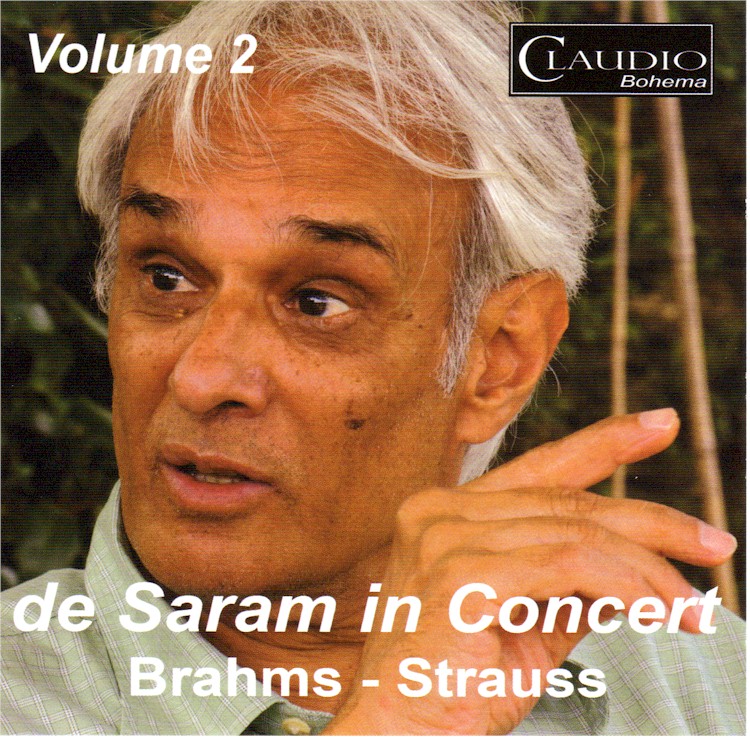
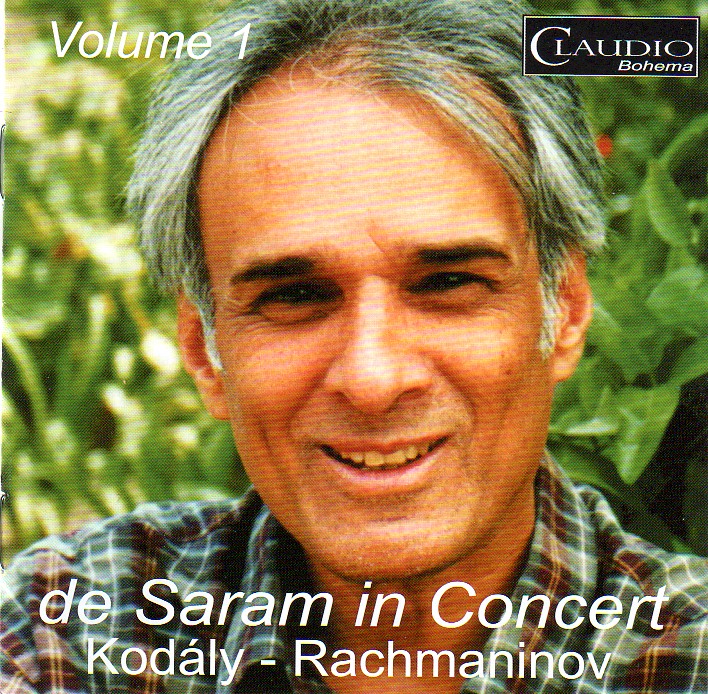
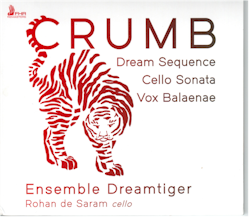
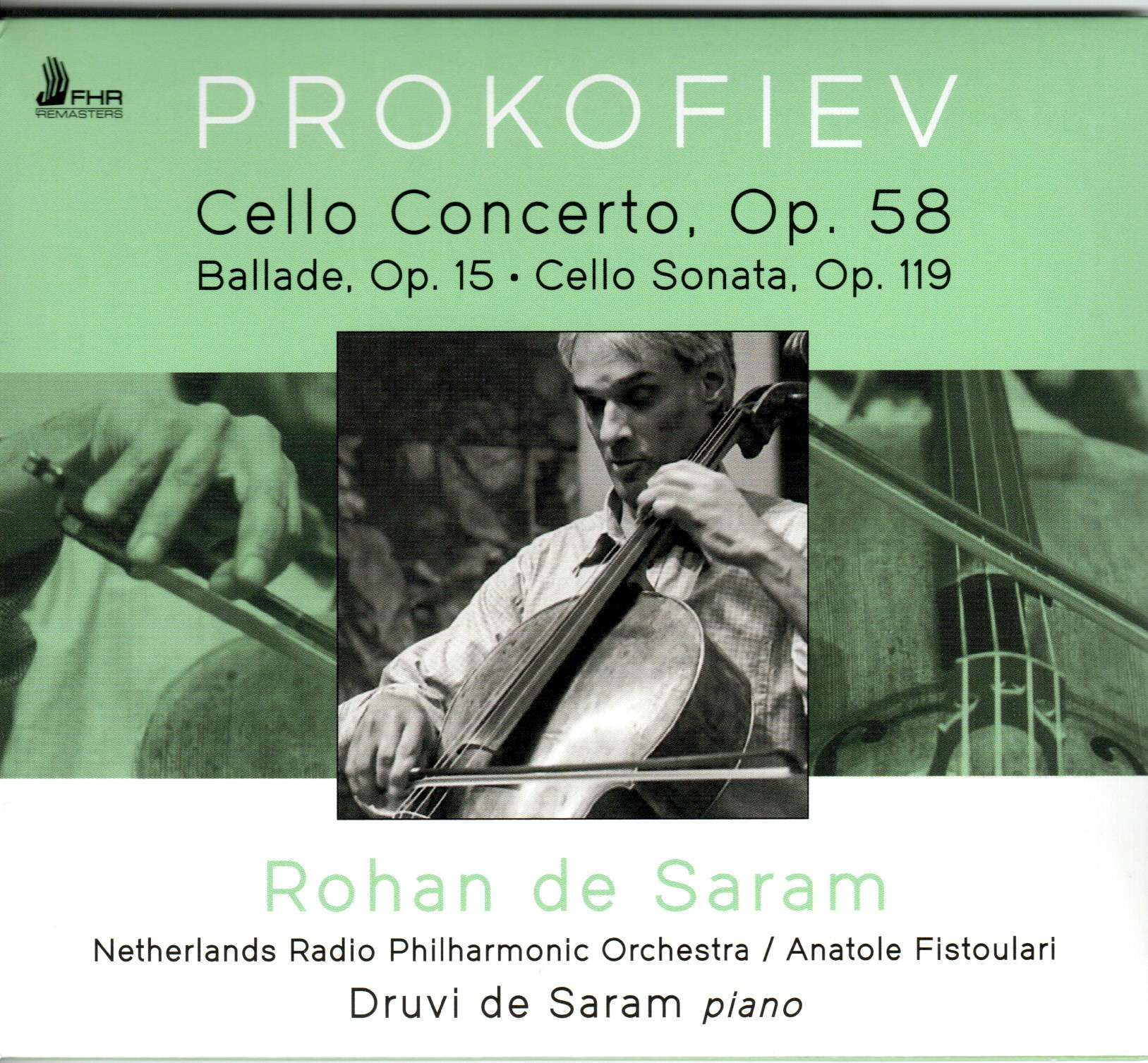
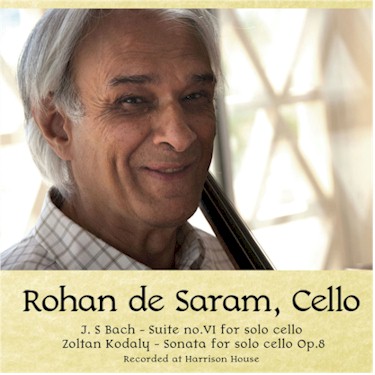
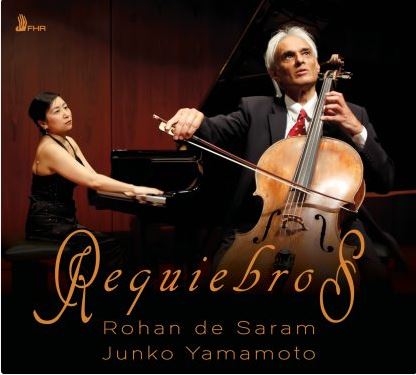
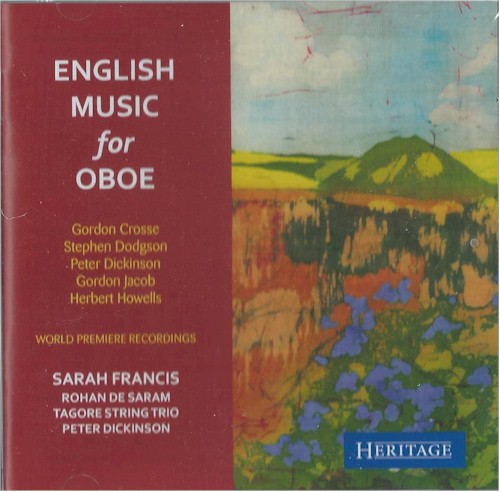
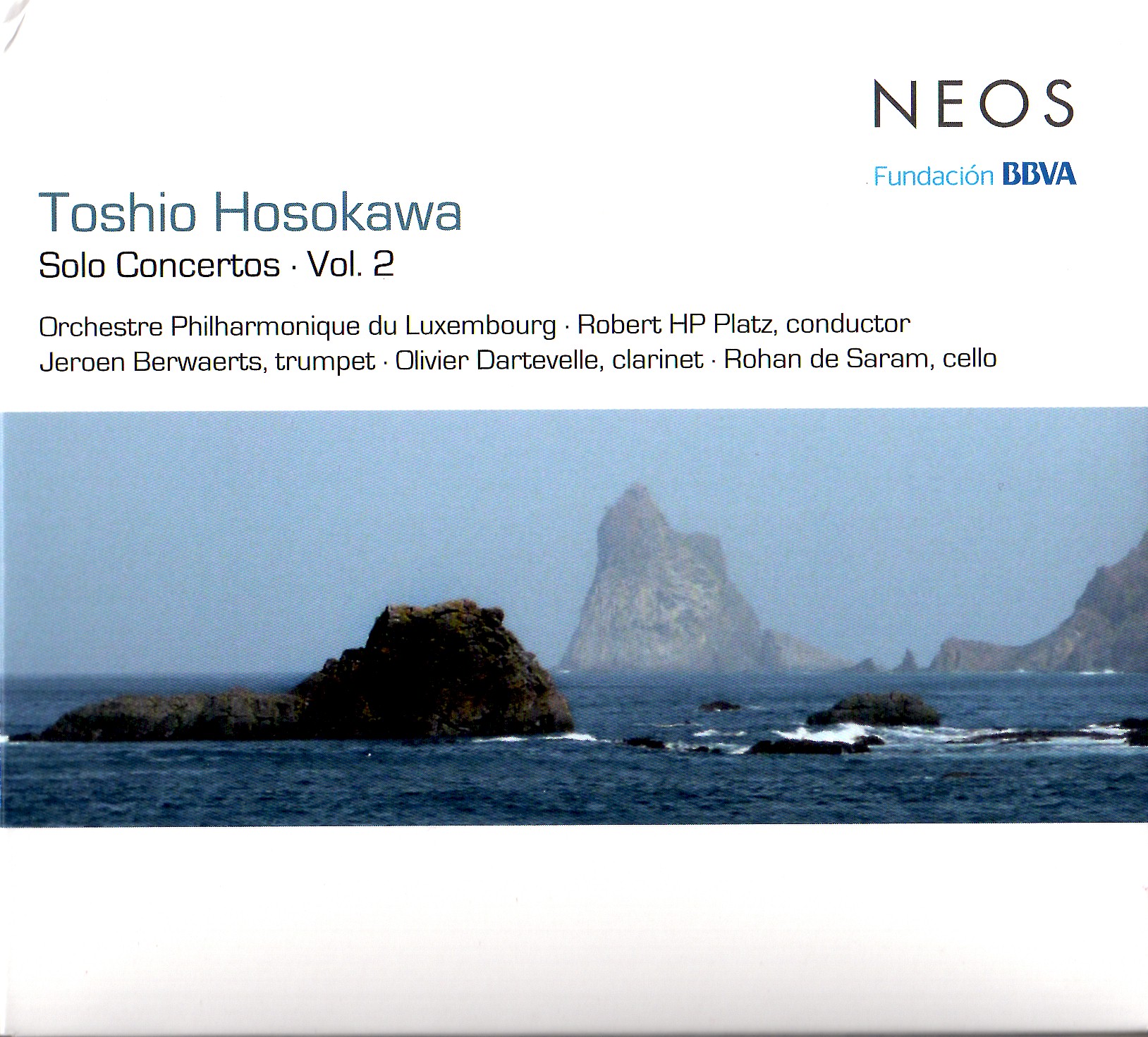
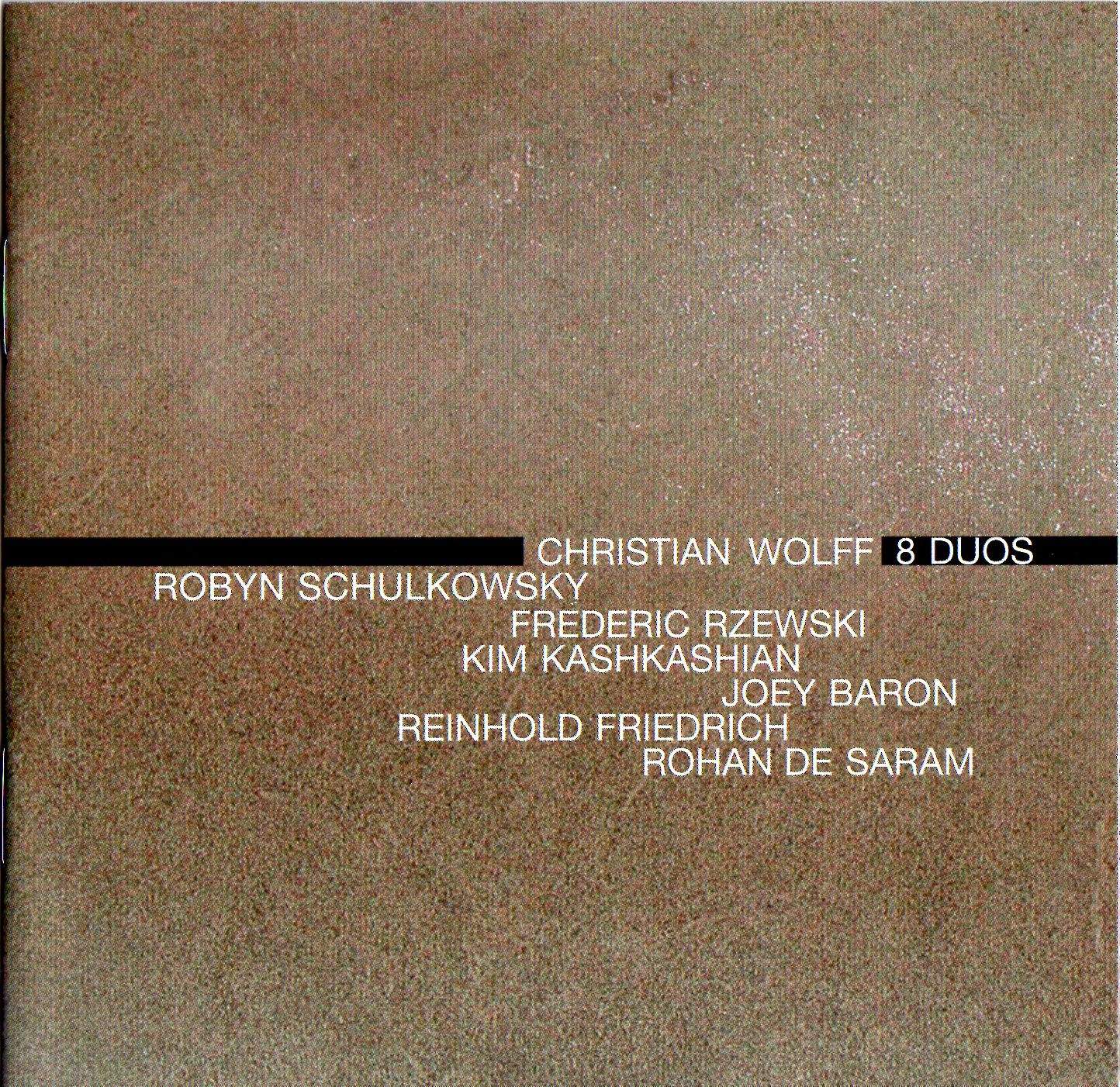
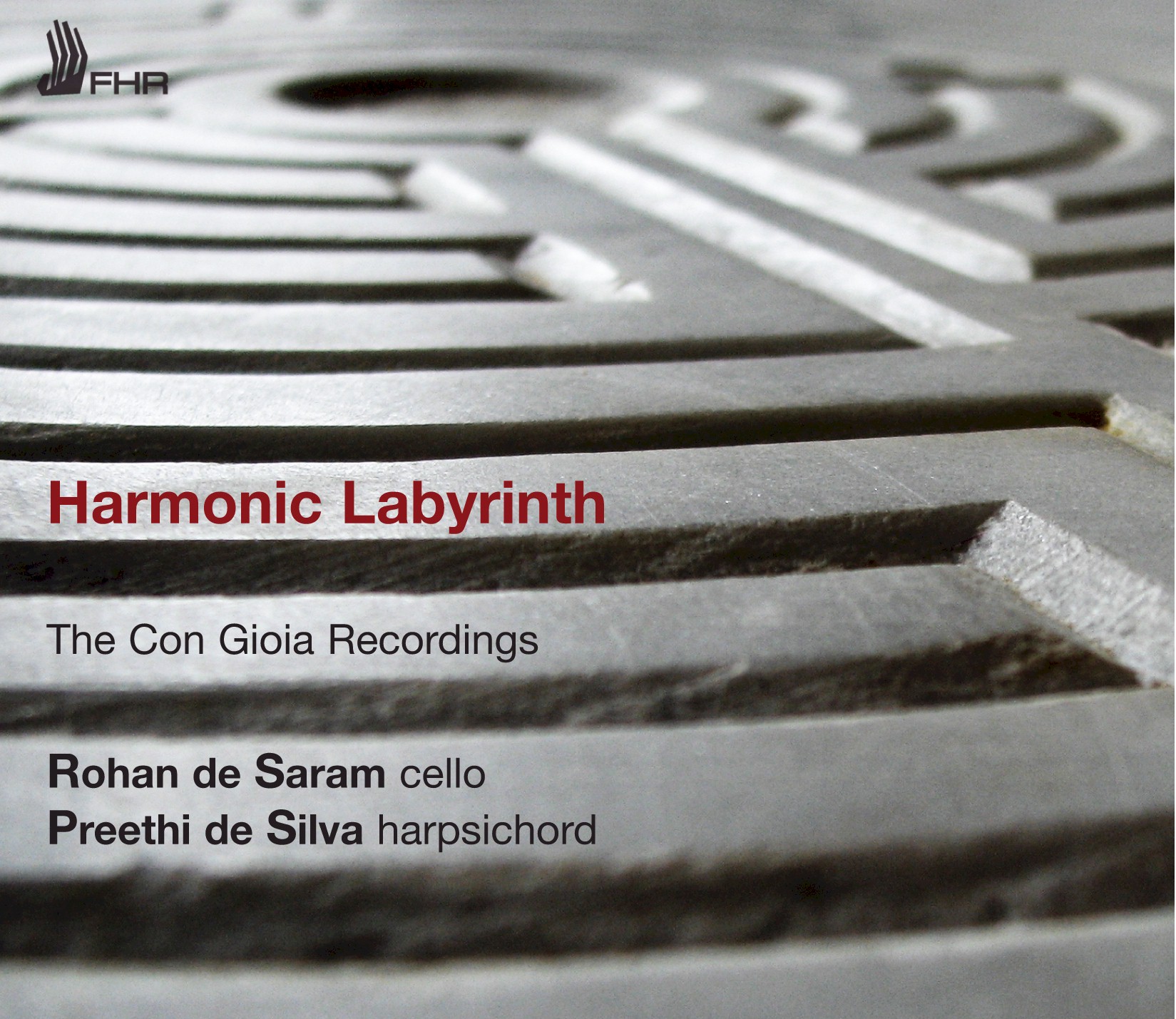
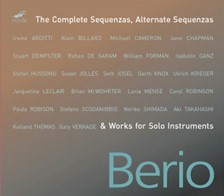
.jpg)
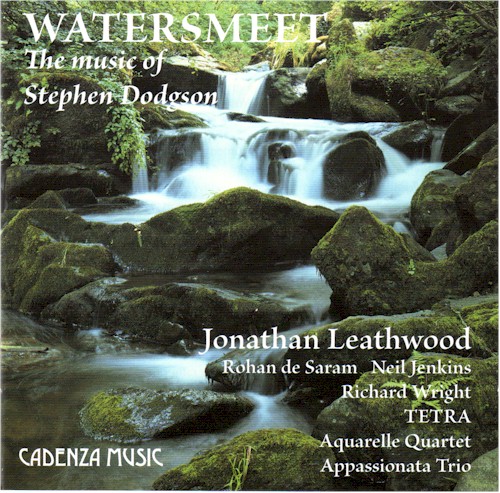
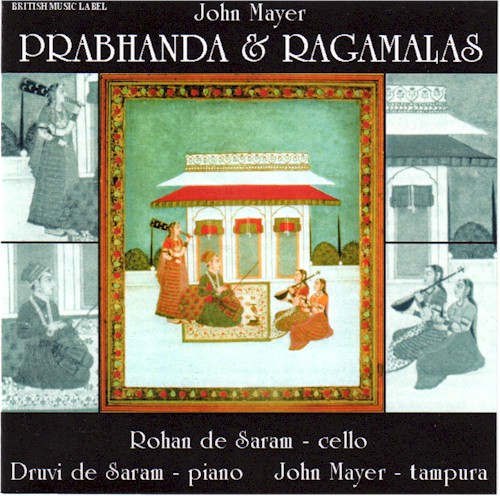
.jpg)
